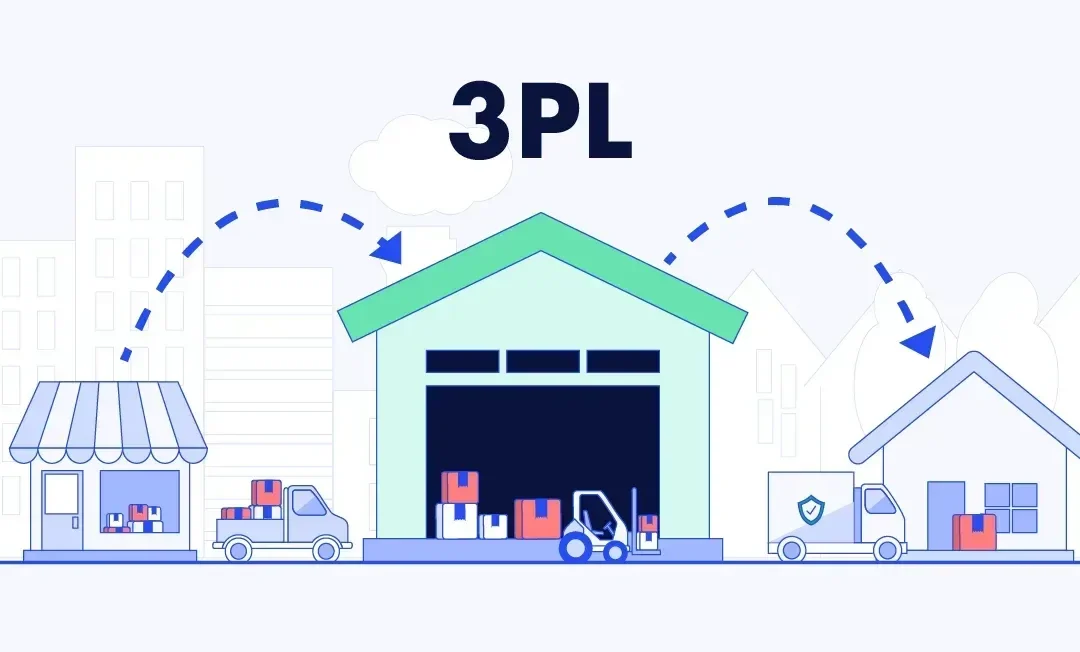Do you need to optimize logistics and drive down operational costs? Third-party logistics (3PL) could be the strategic solution your business needs. By utilizing 3PL services, you can streamline your supply chain, enhance operational efficiency, and focus on scaling your business.
Continue reading to learn how partnering with a trusted 3PL provider can improve your logistics operations and drive sustainable growth in an increasingly dynamic industry.
What is Third-party Logistics?
Third-party logistics refers to a service where businesses outsource specific supply chain functions to an external provider. These functions can include transportation, warehousing, inventory management, and order fulfillment. The 3PL provider manages these operations without owning the products. This solution allows companies to reduce operational costs, improve efficiency, and focus on core business activities.
Services Offered by 3PL Providers
3PL companies offer a comprehensive range of services, including:
- Transportation management: Coordinating and optimizing the movement of goods.
- Warehousing: Storing goods in strategically located facilities.
- Distribution: Managing the delivery of products to customers or retailers.
- Financial services: Offering services such as freight auditing to ensure cost-efficiency.
How Third-Party Logistics Works?
Outsourcing 3PL streamlines the supply chain process. Here’s how it typically works:
- Receiving and Quality Check: The third party logistics provider receives products from suppliers or manufacturers. They inspect items for accuracy and quality before logging them into their inventory system.
- Warehousing and Order Processing: Products are stored in strategically placed warehouses for efficient access. When an order is received, the 3P team picks and prepares the items for packing.
- Packaging and Shipping: The 3PL companies select appropriate packaging to protect products and minimize shipping costs. Once packed, the order is dispatched to the customer using preferred carriers.
- Returns Management: Regarding returns, 3rd party logistics providers handle the process. They inspect the returned items, update the inventory, and manage any necessary restocking or disposal.
Benefits of Using a 3PL Provider
Partnering with 3PL support can significantly enhance business operations. Here’s how:
Cost Savings
They help businesses save on costs by negotiating better freight rates due to their large shipping volumes. They also reduce overhead costs related to facilities, equipment, and technology that would otherwise be expensive for individual businesses.
Expertise and Focus
3PL providers bring specialized knowledge and stay updated on industry trends and regulations. This expertise allows them to optimize the supply chain, helping businesses streamline operations while allowing internal teams to focus on core business functions like growth and innovation.
Scalability and Flexibility
A key advantage of using a third party is scalability. As your business expands, a reliable 3PL provider can quickly adapt to increased demand or new markets. They also offer flexibility to manage seasonal fluctuations, ensuring your operations remain efficient without incurring unnecessary costs during slower periods.
Elevate Your Business with IOR Africa
Discover how our third-party logistics services can transform your business operations. Fill out our form to receive more information and schedule a personalized consultation. Benefit from 3PL documentation requirements. We help streamline international trade, ensure compliance with customs regulations, and prevent costly delays. Let us help you take your global operations to new heights
Further your understanding by consulting related articles:

